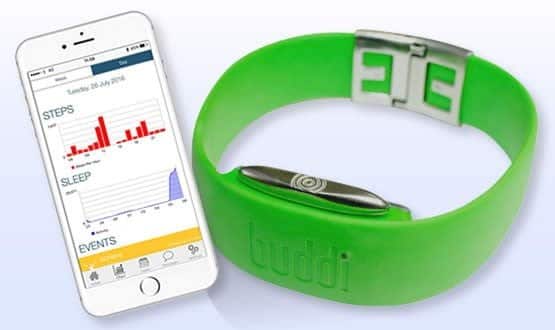Wearable and app in trial to prevent diabetes

Wearables and “motivational” mobile app will be piloted in London as a fix for the swelling health burden of Type 2 diabetes.
King’s Health Partners and wearable technology company Buddi are collaborating in a randomised control trial, part funded by Innovate UK, to improve outcomes for pre-diabetics.
The trial will test how effective a Buddi wristband monitor in combination with a mobile app, designed with clinical input from King’s Health Partners, in promoting exercise and healthy eating.
Dr David Hopkins, co-leader of the King’s Health Partners diabetes clinical academic group, said the wearable monitored your movement, like an off-the-shelf fitness device but far more accurately.
This data was linked into the mobile app, which would send the motivational messages to encourage further movement if a user appeared not to be staying active.
Hopkins said the messaging was based on motivational interviewing techniques, a counselling approach focused on unlocking a patient’s own motivation and creating practical plans to achieve goals.
For instance, the app could suggest the user try swimming if they were struggling to stick to regular runs.
“One of the issues with the wearables available over the counter is that people don’t keep using them. We are trying to change that.”
The users will also be able to register their meals on the app and when they have a craving the app will provide “motivation strategies” to avoid overeating.
Roughly one if three British adults are estimated to have “prediabetes”, with abnormal blood sugars levels that puts them at risk of type 2 diabetes. There has been a growing focus on lifestyle interventions within this group, to prevent them crossing that threshold, but Hopkins said it was difficult to deliver an effective programme at scale.
If a wearable and mobile solution proved effective it would be easier to scale than many more people intensive interventions, he said.
Sara Murray, chief executive and founder of Buddi, said the trial was about moving away from reactive treatment to prevention.
As far as she was aware, this was the first time wearables had been trialled as an answer to type 2 diabetes prevention in the NHS.
“This has the potential to provide an option for prevention and a sustained approach to lifestyle behaviour change, which is clearly needed by the NHS and patients alike.”
The trial will run for a year, with a cohort of 200 patients drawn from the Lambeth and Southwark London boroughs. Half of these patients would be trailed with just the wearable device and some simple non-responsive messaging, while the other half would use the device with the motivational messaging app.
The pilot would run the length of next year and, if it proved effective, would be trialled on larger and broader patient groups.




